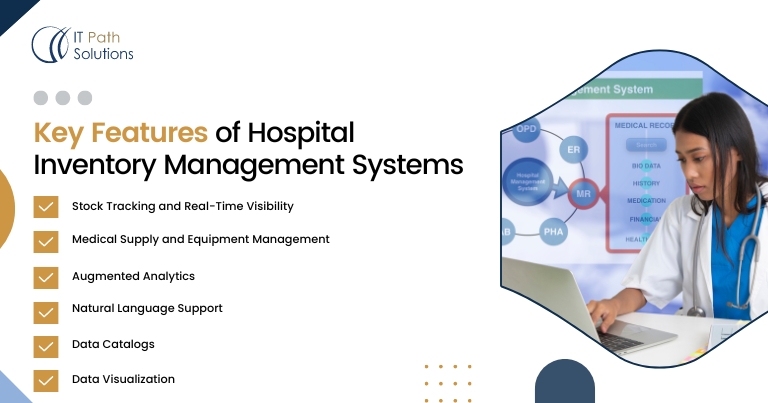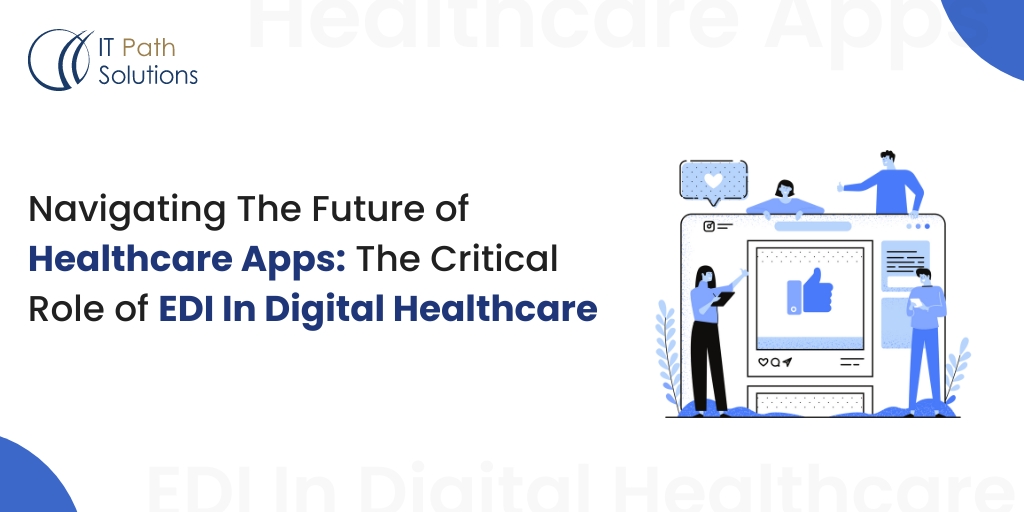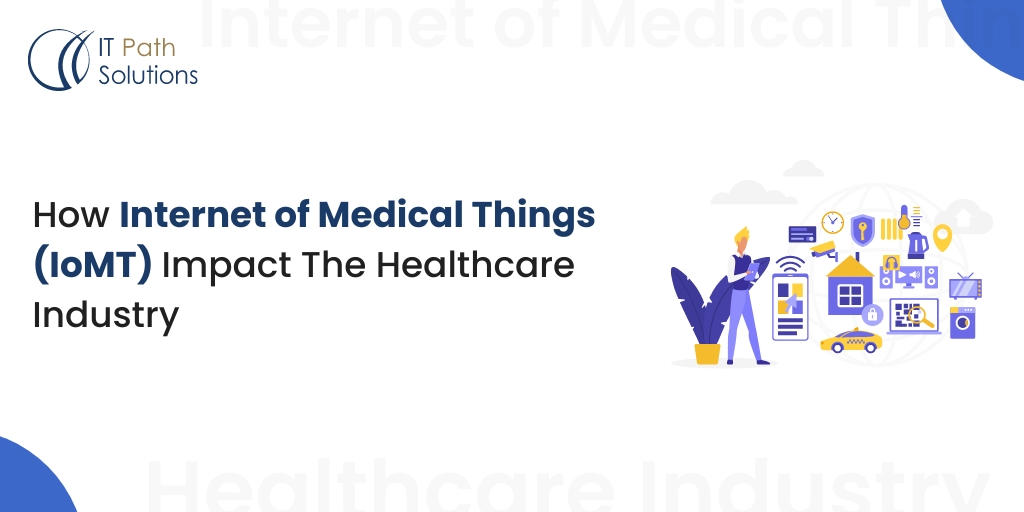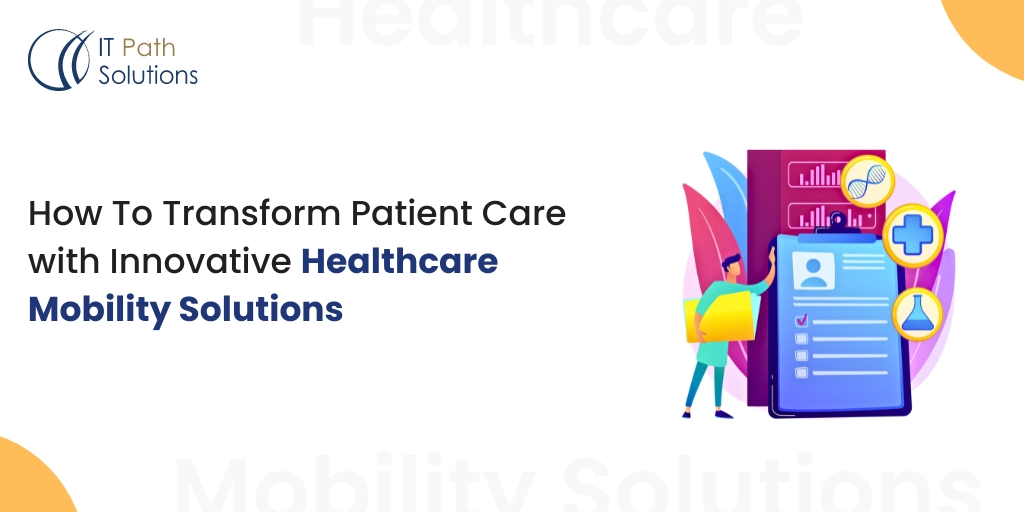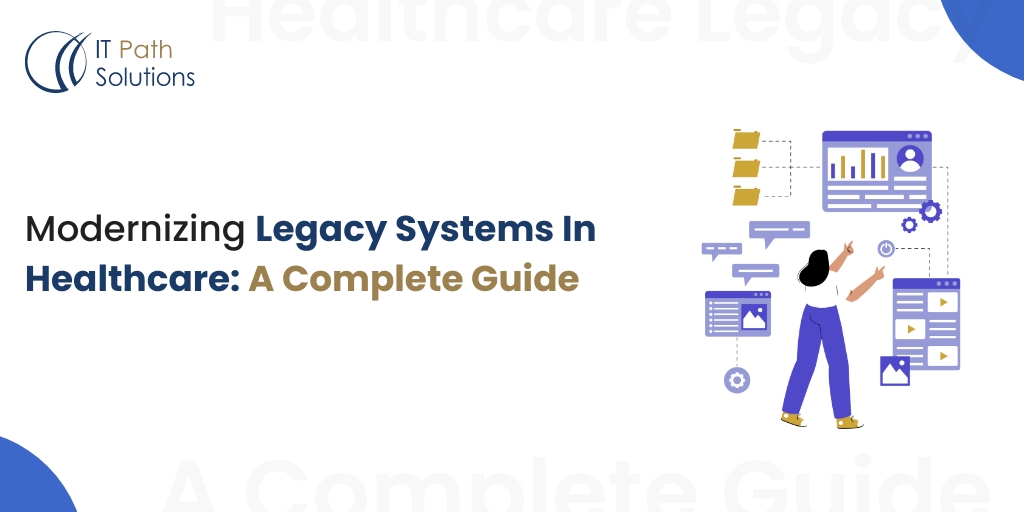Hospital Inventory Management Software: Revolutionizing Healthcare Operations
Healthcare
The Importance of Effective Hospital Inventory Management Software
Multiple challenges plague traditional hospital inventory management. Sorting & organizing pharmaceuticals becomes a daunting task. Preventing shortages & overstock situations requires constant vigilance. Tracking the expiration dates of numerous items proves time-consuming.
These labor-intensive processes drain resources & increase the risk of errors. With the advent of Innovative hospital inventory management systems, these issues can be tackled head-on!
Key features of cutting-edge hospital inventory management systems revolutionize operations. For example, stock tracking & real-time visibility provide instant insights into the data. Medical supply & equipment management becomes streamlined & efficient. Inventory automation reduces manual workload.
Robust security & compliance measures protect sensitive data. Barcode & RFID integration speeds up processes. Advanced forecasting & demand planning optimize stock levels. These features transform chaotic inventory management into a smooth, organized system!
Implementing healthcare inventory management software offers numerous benefits. It simplifies inventory management, reducing complexity & human error. Improved accuracy & analytics lead to better decision-making. Real-time tracking capabilities ensure you always know your stock levels.
Cost savings & optimization boost the bottom line. Enhanced patient care results from having the right supplies at the right time. The medical supply inventory system has become a powerful tool for efficiency!
Types of Inventory in Healthcare Settings
Healthcare facilities manage diverse inventory types, each with unique requirements. Medical supplies encompass a wide range of items, from bandages to surgical instruments. Pharmaceuticals require special handling & storage conditions. Equipment includes everything from basic diagnostic tools to complex imaging machines.
The inventory management software for medical stores must accommodate these varied inventory types. It tracks stock levels, monitors expiration dates, & ensures proper storage conditions. This comprehensive approach prevents shortages, reduces waste, & maintains quality standards.
Challenges in Hospital Inventory Management
Hospital inventory management faces numerous challenges. Sorting & organizing pharmaceuticals requires meticulous attention to detail, preventing shortages & overstock situations demands constant vigilance. Tracking expiration dates for numerous items proves time-consuming & error-prone.
These labor-intensive processes strain resources & increase the risk of mistakes. Traditional methods often rely on manual data entry, leading to inaccuracies. The sheer volume of items in a hospital setting compounds these challenges. Efficient hospital inventory management software addresses these issues rightly!
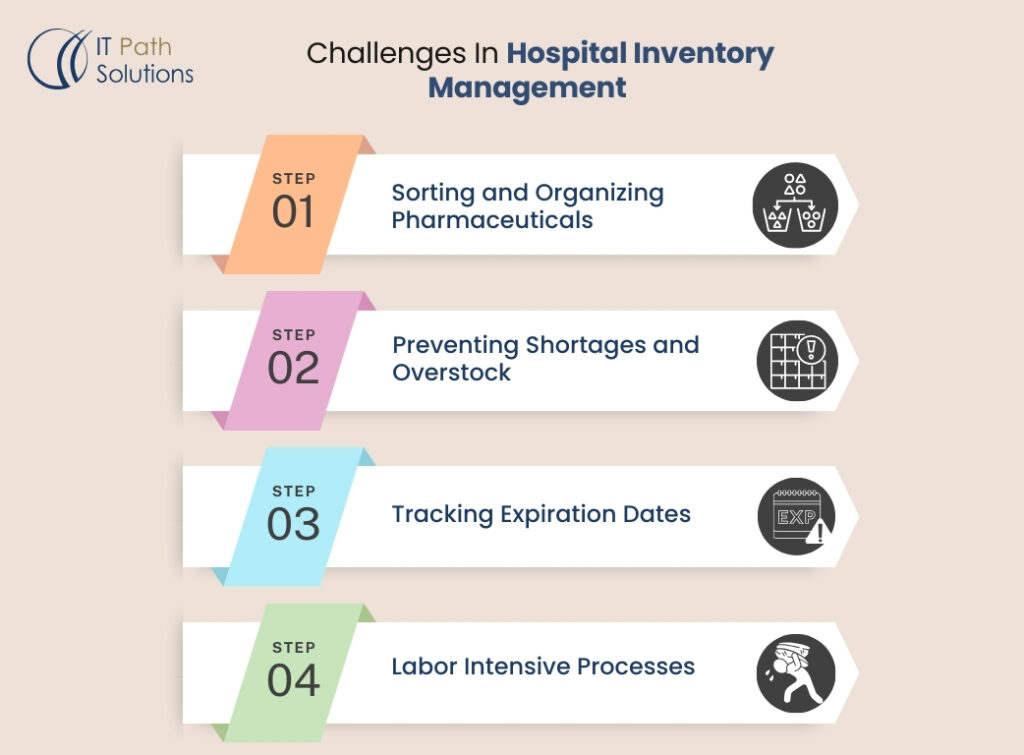
Key Features of Hospital Inventory Management Systems
Predictive Analytics for Demand Forecasting
- Utilize machine learning algorithms to predict future inventory needs based on historical data, seasonal trends, and upcoming scheduled procedures.
- Integrate with hospital scheduling systems to anticipate surge demands.
IoT Integration for Real-Time Asset Tracking
- Implement IoT sensors on high-value equipment for real-time location tracking.
- Monitor usage patterns and automate maintenance schedules based on actual usage rather than fixed intervals.
Blockchain-based Supply Chain Verification
- Ensure authenticity and traceability of medical supplies, especially for critical items like pharmaceuticals and implants.
- Create an immutable record of the supply chain to combat counterfeit products.
AI-Powered Image Recognition for Inventory Counts
- Use computer vision to automate physical inventory counts.
- Detect discrepancies between physical stock and system records automatically.
Virtual Reality Training Module
- Provide VR-based training for staff on proper inventory management procedures.
- Simulate various inventory scenarios for better preparedness.
Dynamic Pricing Integration for Procurement
- Connect with supplier APIs to get real-time pricing information.
- Implement an algorithm to suggest the best time to purchase based on price trends and demand forecasts.
Patient-Specific Inventory Allocation
- Link inventory directly to patient care plans.
- Automatically reserve and allocate supplies based on upcoming patient needs.
Environmental Monitoring for Sensitive Items
- Integrate sensors to monitor temperature, humidity, and other environmental factors for sensitive inventory items.
- Automated alerts for out-of-range conditions.
Cross-Hospital Resource Sharing Platform
- Enable secure sharing of inventory information across a network of hospitals.
- Facilitate inter-hospital loans or exchanges of supplies during shortages.
Voice-Activated Inventory Management
- Implement voice recognition for hands-free inventory queries and updates.
- Useful for sterile environments where touch interfaces are impractical.
3D Printing Integration for On-Demand Parts
- Connect with 3D printing systems for rapid production of certain supplies or parts.
- Reduce reliance on external suppliers for specific items.
Augmented Reality Picking Assistance
- Use AR glasses to guide staff through the most efficient picking routes.
- Display real-time inventory information in the staff’s field of view.
Automated Compliance Reporting
- Generate regulatory compliance reports automatically.
- Track and report on controlled substances and other regulated items.
Personalized Dashboards and KPIs
- Allow each user to customize their dashboard based on their role and preferences.
- Set personalized KPIs and alerts for different departments or individuals.
Integration with Emergency Response Systems
- Automatically adjust inventory thresholds and ordering in response to declared emergencies.
- Provide real-time inventory status to emergency coordinators.
Best Practices for Hospital Inventory Management
Implementing best practices elevates hospital inventory management performance. Collecting comprehensive data from the supply chain provides valuable insights for decision-making. Improving the recordkeeping of hospitals ensures accurate & up-to-date information on all inventory items.
Securing sensitive data protects patient privacy & complies with regulatory requirements. Organizing inventory to avoid redundancies saves space & money. These practices form the foundation of a well-oiled inventory management machine, maximizing efficiency & minimizing errors!
Implementing Hospital Inventory Management Software
The process of implementing hospital inventory management software requires careful planning & execution. It begins with a thorough requirement analysis to identify specific needs & goals. Design & development bring the system to life, tailoring it to the hospital’s unique requirements.
Rigorous testing & deployment ensure smooth operation in real-world conditions. Integration with existing systems, such as EMR & purchasing, creates a cohesive ecosystem. Comprehensive training & support empower staff to utilize the system effectively. This methodical approach results in a tailored solution that meets unique hospital needs & maximizes benefits!
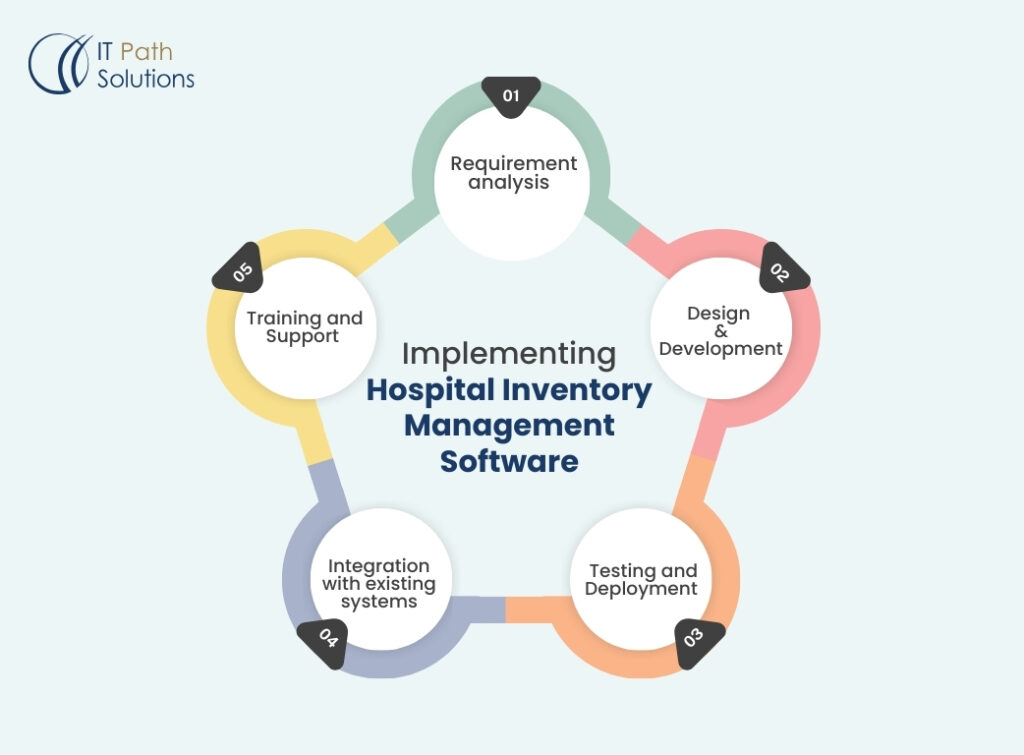
Advanced Technologies in Hospital Inventory Management
Cutting-edge technologies like Node JS are revolutionizing hospital inventory management. Cloud-based solutions offer flexibility, accessibility, & scalability. Internet of Things (IoT) applications connect devices for seamless data flow & real-time monitoring. Data science & business intelligence provide deep insights for informed decision-making.
Artificial Intelligence in inventory prediction anticipates needs before they arise, optimizing stock levels. These advanced technologies transform inventory management into a proactive, data-driven process. The medical office inventory system becomes a sophisticated tool for efficiency & cost savings!
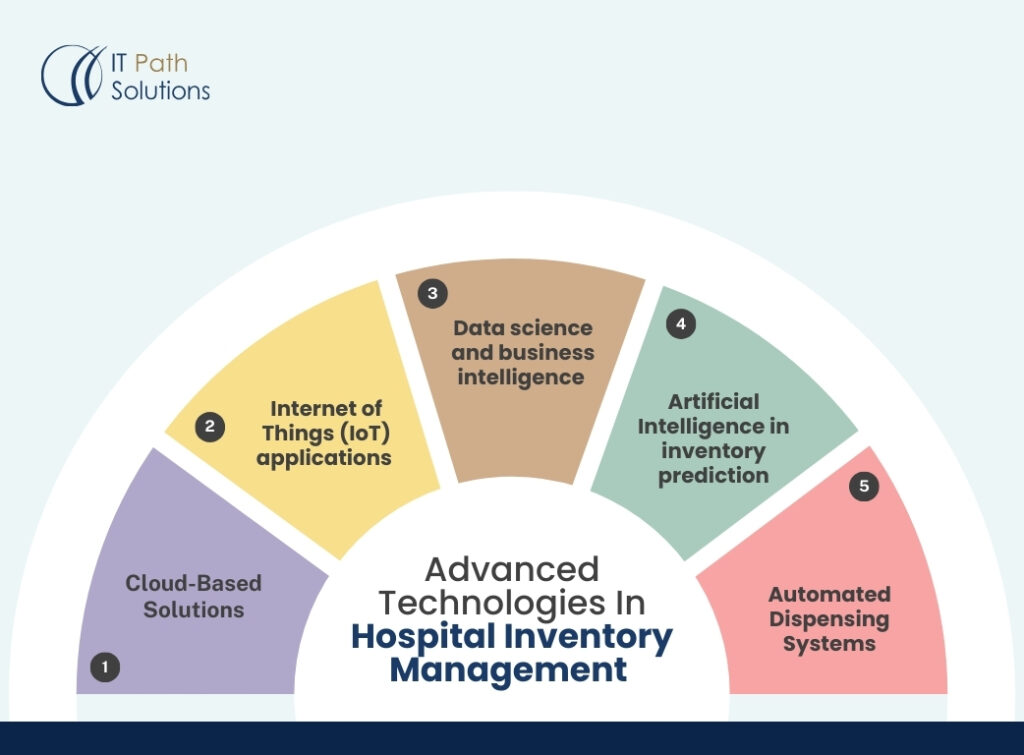
Successful Implementations of Hospital Inventory Management
Successful implementations of hospital inventory management software demonstrate its transformative power! Top healthcare institutions like Cleveland Clinic, Mayo Clinic, & Johns Hopkins Medicine have revolutionized their operations with these systems. These case studies showcase dramatic improvements in efficiency, cost savings, & patient care.
Organizations like Cleveland Clinic reported a 30% reduction in inventory costs after implementing a comprehensive inventory management system. Similarly, Mayo Clinic improved its inventory accuracy to 99.5% which resulted in reducing stock-outs & improving patient care. Talk about a massive change! What’s more, Johns Hopkins Medicine streamlined its supply chain resulting in reducing order processing time by 50%. These experiences serve as inspiration & guidance for other hospitals seeking to upgrade their inventory management systems!
Choosing the Right Hospital Inventory Management Software
Selecting the appropriate hospital inventory management software requires careful consideration. Factors to weigh include scalability, ease of use, integration capabilities, & cost. The decision between custom & off-the-shelf solutions depends on specific needs & resources. For example, do you want a web development version, or mobile app, or both?
Custom solutions offer tailored functionality but may require a higher initial investment. Off-the-shelf options provide quick implementation but may lack specialized features. Careful evaluation ensures the chosen system aligns with hospital goals & requirements. The medical store stock management system should fit seamlessly into existing workflows & improve overall efficiency!
Future Trends in Healthcare Inventory Management
The future of healthcare inventory management promises exciting developments. Emerging technologies like blockchain will enhance security & traceability. Machine learning algorithms will improve demand forecasting & inventory optimization. Increased automation will streamline processes & reduce human error.
Predictive analytics will anticipate supply needs & prevent shortages. Seamless integration with suppliers will create more efficient supply chains. The clinic inventory management software will evolve to meet growing demands & challenges. Staying informed about these trends helps hospitals prepare for the future of inventory management!
Conclusion
Effective hospital inventory management software plays a crucial role in modern healthcare. It streamlines operations, reduces costs, & improves patient care. The DME billing and inventory software ensures critical equipment is always available & properly maintained.
Implementing best practices & leveraging advanced technologies optimizes inventory management. From the drug inventory system to the hospital store management system, every aspect of healthcare inventory benefits from these innovative solutions.
As healthcare continues to evolve, robust inventory management systems in hospital settings will become increasingly essential for success. Inventory management systems for hospitals & medical clinics inventory system solutions will drive efficiency, reduce costs, & ultimately improve patient outcomes. Embrace the power of hospital inventory management software & propel your healthcare facility into the future!
 Healthcare
Healthcare  Education
Education  Real Estate
Real Estate  Logistic
Logistic  Fitness
Fitness  Tourism
Tourism  Travel
Travel  Banking
Banking  Media
Media  E-commerce
E-commerce 
